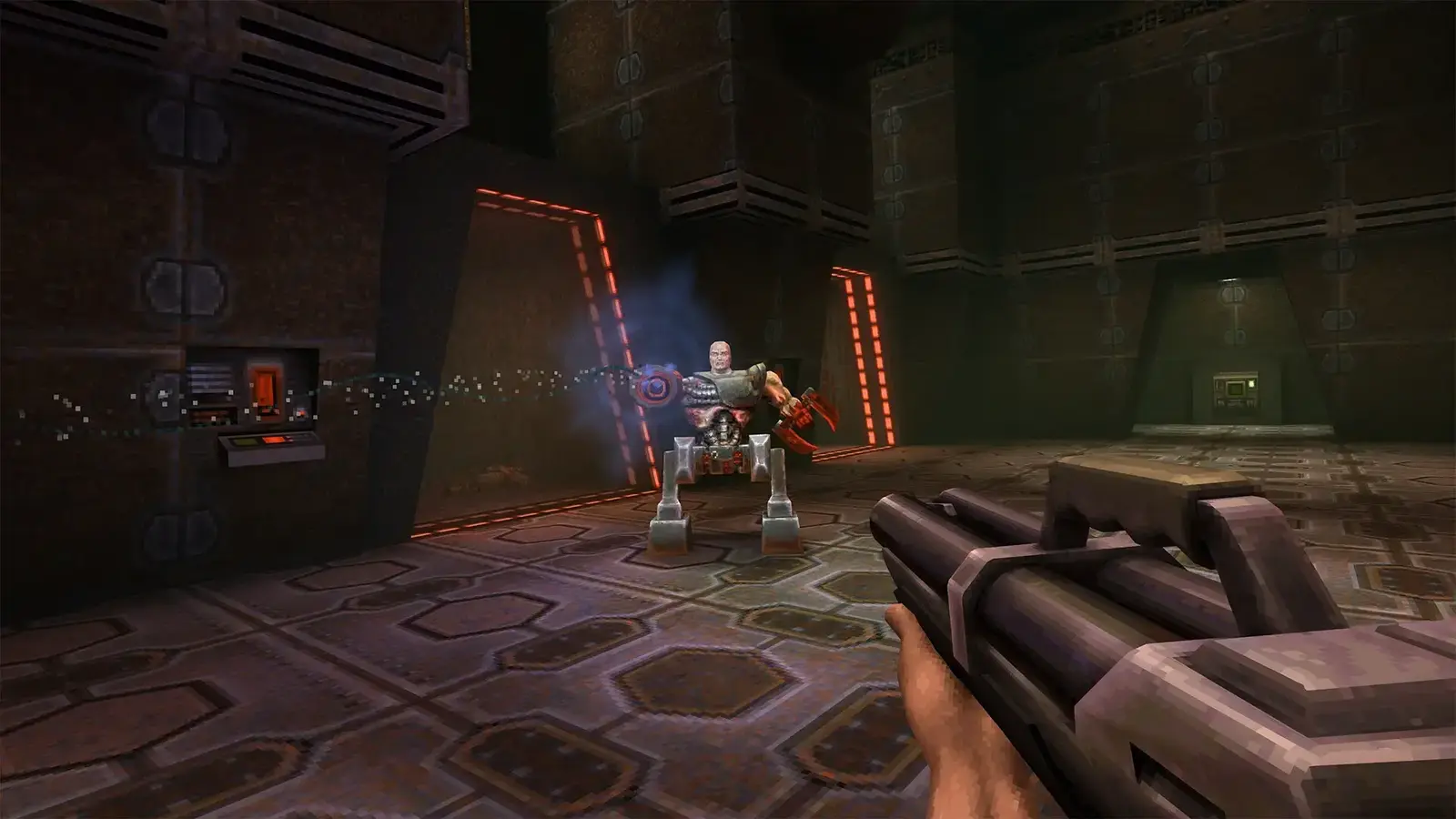Microsoft is making waves with its latest foray into artificial intelligence, this time setting its sights on the classic first-person shooter, Quake II. The tech giant has unveiled a tech demo showcasing an AI-powered version of the game, generating gameplay on the fly using its Muse generative AI model. This experimental project offers a glimpse into a future where AI could dynamically create game content, but it also raises questions about the role and impact of AI in the gaming industry.
The AI-generated Quake II demo, dubbed WHAMM (World and Human Action MaskGIT Model), is accessible directly in a web browser. Unlike traditional games that rely on pre-programmed assets and game engines, WHAMM uses AI to generate visuals and gameplay mechanics in real time based on player inputs. Every action, from movement to shooting, prompts the AI to create the next moment of the game. This is achieved through the Muse AI model, which was trained using gameplay data from professional QA testers playing a single level of Quake II.
Microsoft's AI-driven Quake II builds upon its acquisition of ZeniMax Media, the parent company of id Software, the original developer of Quake II. This acquisition provided Microsoft with access to the game's intellectual property, enabling them to explore the possibilities of AI-driven game creation.
The WHAMM model is an evolution of the earlier WHAM-1.6B and represents a leap forward in generative AI technology. The model achieves over 10 frames per second (fps) at a resolution of 640x360, a significant improvement over its predecessor. By adopting a MaskGIT strategy—generating all image tokens in parallel rather than sequentially—Microsoft doubled the resolution and boosted performance, making real-time interactivity feasible.
Despite the technical advancements, the AI-generated Quake II demo has faced criticism from the gaming community. Some have described the experience as "janky" and a "fever dream," with blurry visuals and delayed controls. The AI's limited context window also means that elements can disappear or change unexpectedly when the player looks away and back. Others have criticized the enormous resources required to create the demo, especially when the result is a significantly inferior experience compared to the original game.
Microsoft acknowledges the limitations of the demo, emphasizing that it is not intended to replace the original game but rather to showcase the capabilities of the Muse AI model. They also highlight the potential for AI to assist in game preservation, allowing lost or obsolete titles to be resurrected using AI trained on gameplay footage.
While the AI-generated Quake II demo may not be a perfect recreation of the classic game, it represents a significant step forward in AI-driven content creation. It demonstrates the potential for AI to generate dynamic and interactive gaming experiences, opening new avenues for game development and preservation. As AI technology continues to evolve, it is likely to play an increasingly important role in the gaming industry, assisting developers in creating richer and more immersive worlds.

















